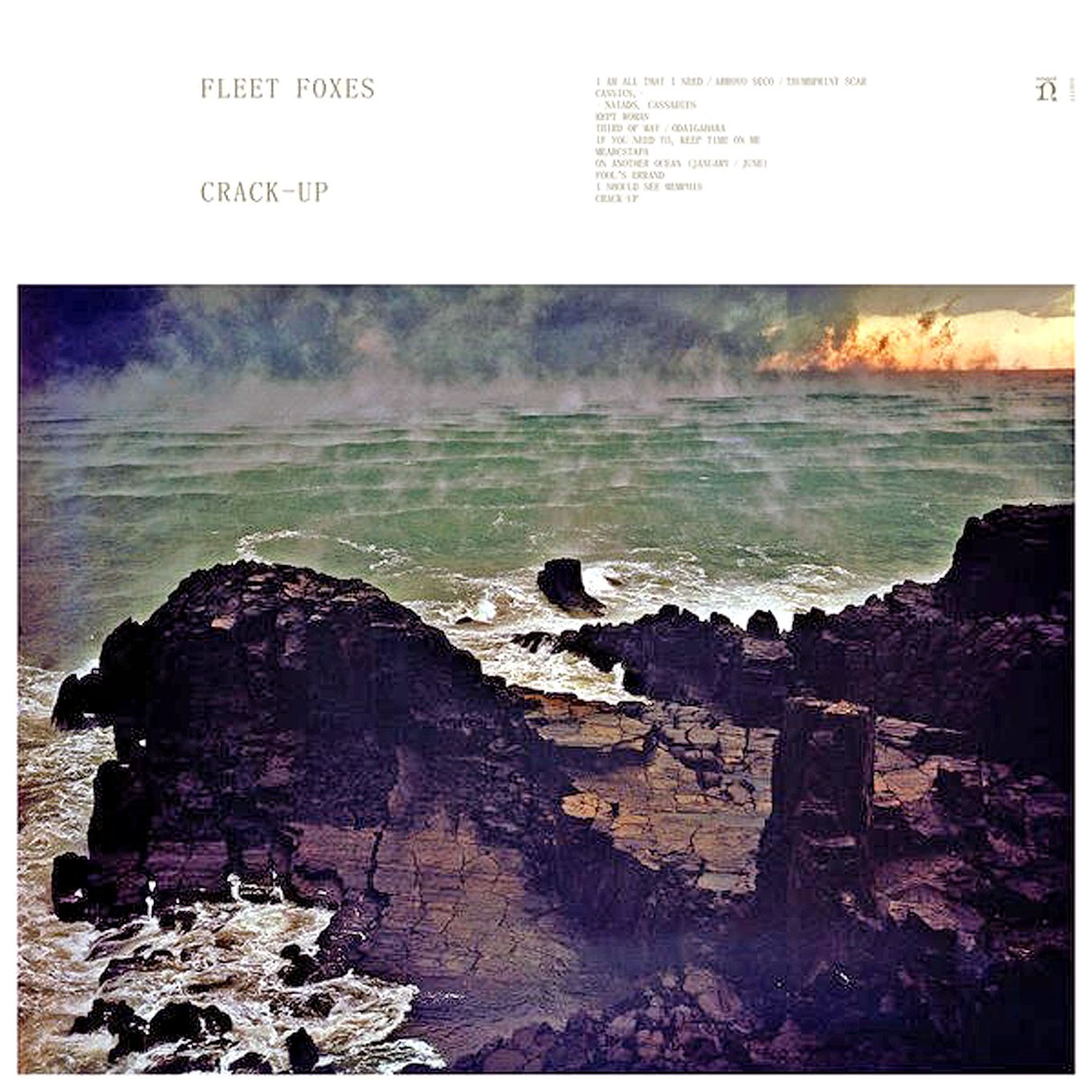Popular Reads
Top Results
Can't find what you're looking for?
View all search resultsPopular Reads
Top Results
Can't find what you're looking for?
View all search resultsAlbum Review: 'Crack-Up' by Fleet Foxes
Full of imaginable textures, their latest album is almost experimental in nature, with flourishes of extreme dynamic changes and shifting vocal lines that takes a few listens to truly settle into a discernible shape.
Change text size
Gift Premium Articles
to Anyone
O
n their third, much-awaited new album, American band Fleet Foxes delivers a deeply rich experience that expands every texture of their well-established sound. Full of imaginable textures, their latest album is almost experimental in nature, with flourishes of extreme dynamic changes and shifting vocal lines that takes a few listens to truly settle into a discernible shape.
While it is not a complete left turn from the band’s previous sound, Crack-Upmostly eschews from the layered harmonies that has become something of the band’s trademark (and quickly set them apart from their mid-2000s United States indie brethren that inadvertently resulted in the corporate arena-folk of bands such as Mumford and Sons). There are still harmonies here, but they play third fiddle to the songs’ un-traditional arrangements and front-man Robin Pecknold’s melodic tendencies. For better and not worse, casual listeners will no longer be able to wrongly compare the band to the Beach Boys.
For the majority of its runtime, Crack-Up eschews traditional song structures. While the band’s previous two albums, 2008’s self-titled debut and 2011’s Helplessness Blues were not exactly pop-oriented, they offered sections that were quickly discernible as verses, choruses, breakdowns, and whatnot. Crack-Up, on the other hand, is filled with intertwining parts that is almost cinematic in execution.
Take the first song that was officially released after the record’s announcement; the almost 9-minutes “Third of May/Ōdaigahara.” Jumping right onto a verse-of-sorts, it opens with a rather jagged folk-rock section that comes with a familiarity before teasing its deep dive into its second section with sudden breaks into whispered parts. By its third minute, the song arrives at something of beautiful intimate part — hushed, reticent — before again, jumping off onto another section that serves as something like the song’s peak: washed in instruments and vocal lines that jump in and out of the song with a disquieting dynamic. All these shifts end into a an epilogue of crackling acoustic guitars and vocals that whisper themselves so intimately, it feels like sitting with Pecknold and his band mates in a campfire session. The personal-nature of the song (May 3 is band guitarist and Pecknold best friend’s Skyler Skjelset’s birthday) adds to the experience, but even without it, the song is a journey.
The journey-like presentation of that song is similarly found on album opener “I Am All That I Need/Arroyo Seco/Thumbprint Scar,” a multi-suite that is responsible for one of the most hushed album opening I’ve heard yet. Elemental and again, whisper-quiet, the “I Am All That I Need” section of the track requires intimate listening (headphones or a good sound system) to reveal its melody. It then moves, with dramatic suddenness, onto a far-louder section that is almost celebratory and baroque-sounding. The track then shifts, this time with an even more drastic suddenness, onto its last part: which constantly-shifts between the gentler, first and second, more-explosive, part of the song. These dynamics are hard to look away from, even if they initially seem to bury the vocal melodies.
Other tracks swerve in simpler, yet-as-adventurous, arrangements. “Naiads, Cassadies” waves into existence with a lush delivery that comes close to familiar Foxes territory, but takes liberal shifts in mood and melodies as well, layering itself with fluid grand piano lines. “Cassius,” named after Muhammad Ali, is almost ambient if not for the gorgeous vocals and high harmonies and organs (which I found, rather guiltily, reminiscent of late period Beach Boys). The oceanic wash of “On Another Ocean (January June)” gazes in patient motion before walking off in disarray/victory as Pecknold sings: Tune any eye into the ivy/ And I won’t bleed out if I know me/ All I need oh don’t deny me/ You ended up too strained.
Named after an F. Scott Fitzgerald essay (and the initials of Pecknold’s alma matter, which he attended after the end of the Helplessness Blues tour), Crack-Up is full of gentle motives that reveal themselves after multiple listening. It also reveals strong, mature melodies that take time to hover before settling onto the mind. While there are some justification towards some critics’ hypothesis of the album completely eschewing the melodic strength that has become the band’s benchmark — I don’t believe simple pop melodies is inherently lesser than its peers — there is a purpose to this record’s ornate intricacy in its vocal lines.
The melodic turns wash over with a more-grandiose feel. If the word “epic” hasn’t lost its weight, I would use it to describe the ways Pecknold chose to sing this time. It also puts the focus on the arrangements that seems to be a purposeful decision. There is no denying, however, that there is part of me that misses the immediacy of the songwriter’s previous melodic tendencies; the way they almost repurpose folk and classic pop onto a modern and emotive texture.
Crack-Up is a strong, purposeful album. It will delight music fans looking for something deep to sink their teeth into; a record that is layered, both figurative and literally, in different moods, textures, instruments and emotions.











